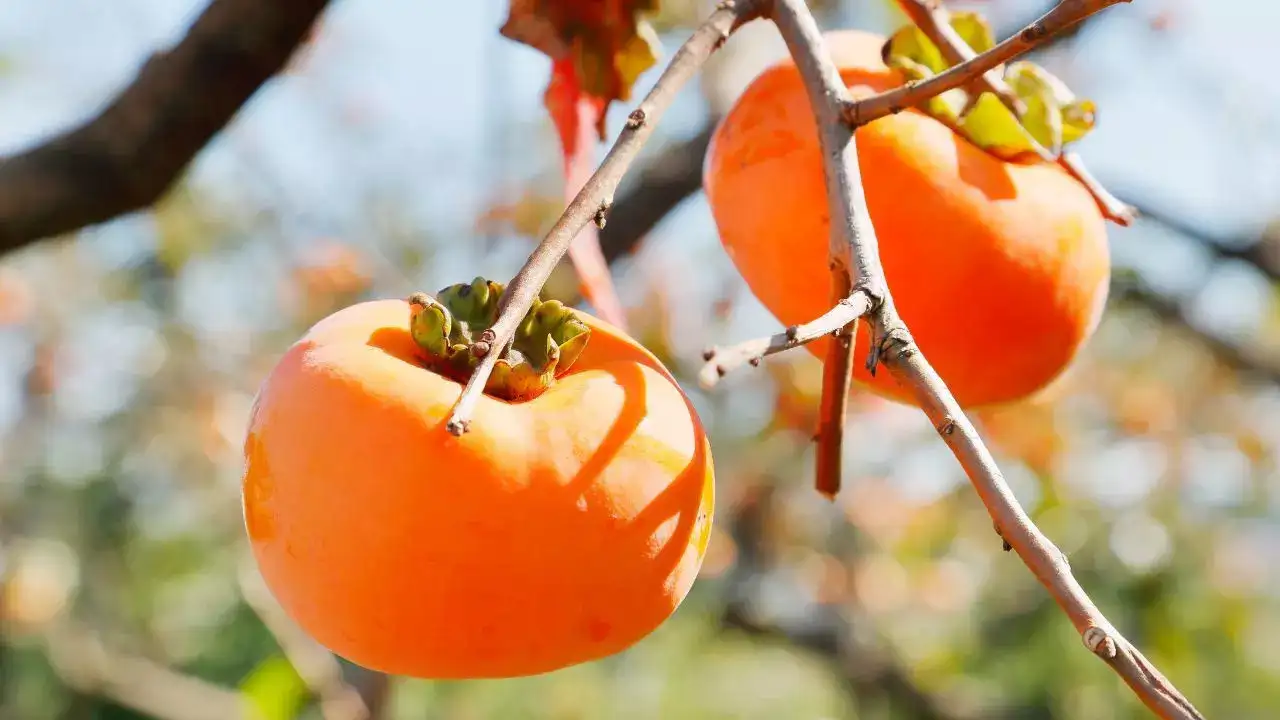Copyright indiatimes

As winter sets in and markets brim with deep orange fruits, persimmons instantly draw attention. Known scientifically as Diospyros kaki, this glossy fruit, often called the “fruit of the gods”, is not just beautiful but packed with nutrients perfect for the cold season. Originating in East Asia and now widely enjoyed across the world, persimmons are rich in antioxidants, vitamins, and minerals that strengthen immunity, protect the heart, and improve metabolism.When the cold months limit access to fresh produce, persimmons offer a timely nutritional lift. A review published in the EXCLI Journal highlights that persimmons are loaded with bioactive compounds that can help reduce oxidative stress and maintain metabolic balance, two areas of health that are often challenged during winter.How persimmons protect your immunity in the cold monthsWinter diets tend to lack variety, but persimmons arrive just when your body needs them most. Their bright orange colour hints at high levels of beta-carotene, which the body converts into vitamin A, a vital nutrient for maintaining vision, skin health, and immune strength.With reduced sunlight exposure during winter, many people experience a dip in immunity and energy levels. Persimmons help counter this by delivering a strong dose of antioxidants that protect cells from cold-related stress and pollution.They also provide a balanced mix of natural sugars, fibre, and essential vitamins like C and E. Vitamin C boosts collagen formation and strengthens the immune system, while vitamin E keeps skin healthy in dry, cold air. This combination of nutrients makes persimmons more than a seasonal delicacy; they’re a natural defence mechanism tailored for winter wellness.What makes persimmons nutritionally powerfulBeneath their smooth, golden-orange surface lies a nutritional powerhouse. Here’s what makes persimmons stand out:Rich in antioxidants: Persimmons are packed with polyphenols and tannins that fight oxidative stress and inflammation. These compounds neutralise free radicals, protecting your body from cellular damage and premature ageing.Loaded with flavonoids: Persimmon peel and pulp contain flavonoids like quercetin and catechin, which support better blood circulation and may help reduce the risk of cardiovascular diseases.High in dietary fibre: The fruit’s soluble fibre binds with cholesterol in the gut, helping lower bad cholesterol levels, while insoluble fibre keeps your digestive system running smoothly, a big advantage during winter when digestion often slows.Moderate in natural sugars: Although sweet, persimmons have a moderate glycaemic index. This means they provide steady energy without sudden sugar spikes, making them suitable even for those mindful of blood glucose.Packed with vitamins: They’re an excellent source of vitamins A, C, and E, all crucial for immune function, skin health, and tissue repair.Filled with essential minerals: Persimmons also supply potassium, manganese, and copper. Potassium regulates fluid balance and blood pressure; manganese aids bone health; and copper supports energy production and brain function.Together, these components create a synergy that boosts immunity, heart health, and metabolism, all key factors for maintaining energy through the colder months.How persimmons support your heart and metabolismOne of the most studied aspects of persimmon nutrition is its potential to support heart health. According to findings published in the EXCLI Journal, the polyphenols in persimmons can help reduce the oxidation of lipids, a process that contributes to artery damage and atherosclerosis. This is particularly relevant in winter, when physical activity tends to drop and heavier meals are more common.By helping to lower low-density lipoprotein (LDL) or “bad” cholesterol, persimmons play a role in maintaining healthy blood vessels and promoting smoother circulation. Their fibre content also supports this effect by binding cholesterol in the digestive tract, further reducing its absorption into the bloodstream.When it comes to metabolism, persimmons may help regulate how your body processes glucose and fat. The fruit’s natural compounds slow the absorption of sugar, which stabilises blood sugar levels and prevents energy crashes. Some studies suggest persimmon extracts may improve insulin sensitivity, helping the body use energy more efficiently.Winter naturally slows down metabolism as your body conserves energy to stay warm. Eating nutrient-dense foods like persimmons helps sustain that balance, providing both quick energy from natural sugars and long-term support from vitamins and antioxidants.What happens inside your body when you eat persimmons regularlyPersimmons don’t just nourish, they actively protect. Their combination of vitamin C, carotenoids, and polyphenols creates a strong antioxidant shield that helps fight inflammation and supports faster recovery from fatigue, infections, or environmental stress.Regular consumption may also improve endothelial function, the ability of blood vessels to expand and contract effectively. Healthy blood vessels ensure better oxygen and nutrient delivery throughout the body, boosting stamina and overall vitality.At a cellular level, carotenoids like beta-cryptoxanthin and lycopene protect membranes from oxidative damage, while gallic and ferulic acids enhance the body’s natural defences. This combination works in harmony to maintain balance across various body systems.These natural compounds, working together, make persimmons an ideal addition to winter diets, strengthening the immune system, supporting heart health, and keeping your energy steady when the cold sets in.Disclaimer: This article is for informational purposes only and should not be considered medical advice. Please consult a healthcare professional before making any changes to your diet, medication, or lifestyle.Also Read | Can a gym supplement really make your brain sharper? The surprising role of creatine for brain health



